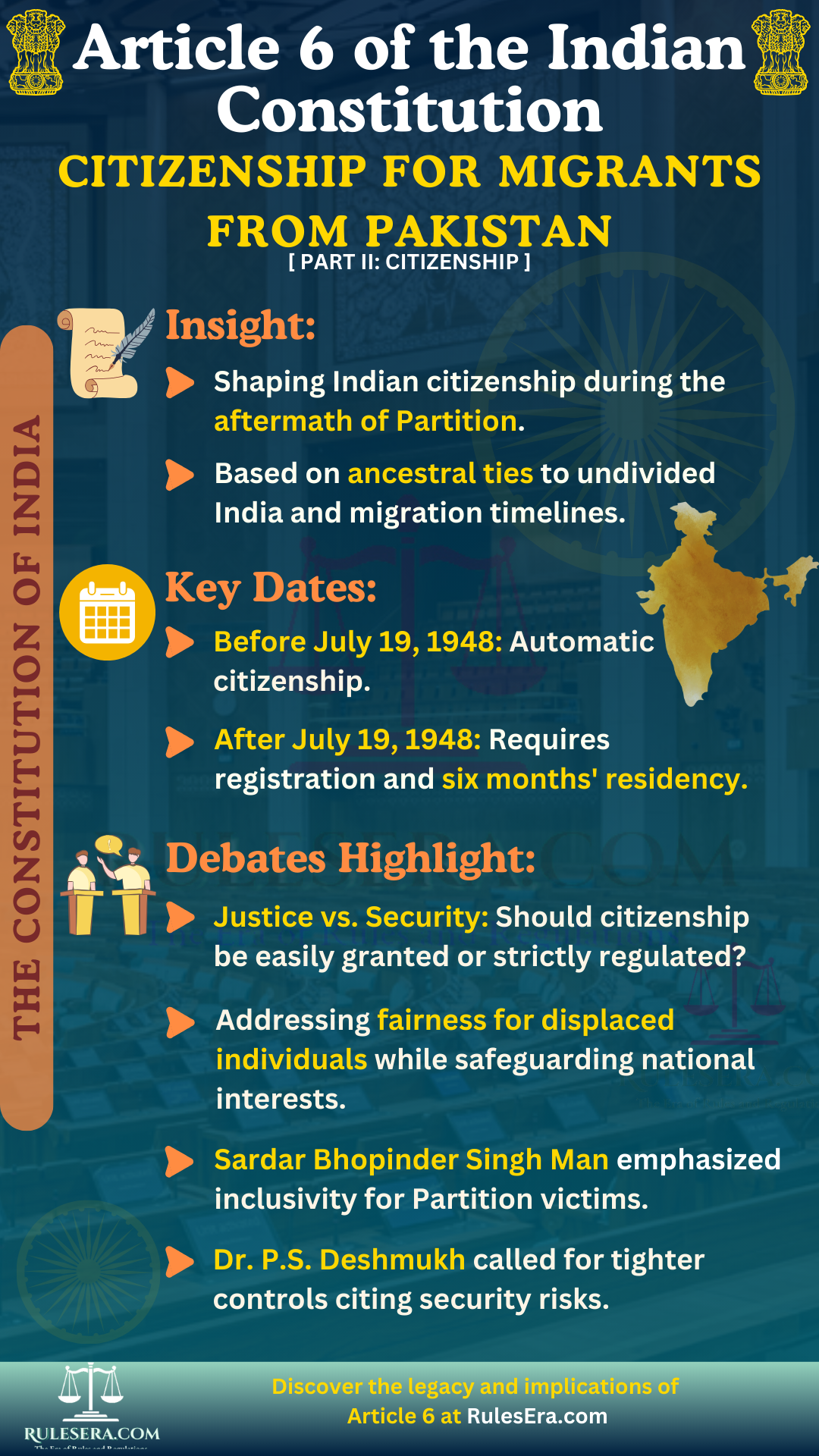Article 6: Rights of Citizenship of Certain Persons Who Have Migrated to India from Pakistan

Original Article:
Notwithstanding anything in article 5, a person who has migrated to the territory of India from the territory now included in Pakistan shall be deemed to be a citizen of India at the commencement of this Constitution if—
- (a) he or either of his parents or any of his grandparents was born in India as defined in the Government of India Act, 1935 (as originally enacted); and
- (b)(i) in the case where such person has so migrated before the nineteenth day of July, 1948, he has been ordinarily resident in the territory of India since the date of his migration, or
- (ii) in the case where such person has so migrated on or after the nineteenth day of July, 1948, he has been registered as a citizen of India by an officer appointed in that behalf by the Government of the Dominion of India on an application made by him to such officer before the commencement of this Constitution in the form and manner prescribed by that Government:
Provided that no person shall be so registered unless he has been resident in the territory of India for at least six months immediately preceding the date of his application.
Explanation:
Article 6 deals with the complex situation of granting citizenship to persons who migrated from Pakistan to India at the time of partition. This provision played a crucial role in addressing the status of displaced persons during one of the most significant upheavals in Indian history. The article defines eligibility criteria based on migration timelines and ancestry:
- Ancestral Connection to India: The migrant or their parent or grandparent must have been born in India as per the Government of India Act of 1935.
- Residency and Migration Timelines: Different criteria apply based on the timing of migration, either before or after July 19, 1948.
Historical Context and Implications:
Article 6 was instrumental during the partition era, addressing citizenship for those displaced across the newly formed borders. By defining citizenship criteria, it helped provide legal recognition to those starting anew in India. This provision reflects both the humanitarian considerations of the time and the ongoing evolution of India’s citizenship laws.
Legislative History:
Article 6 was debated during the Constituent Assembly discussions from August 10-12, 1949, reflecting similar considerations as Article 5. These debates shaped how citizenship was initially framed in the Indian Constitution.
Debates and Deliberations:
In the Constituent Assembly debates, Dr. B.R. Ambedkar discussed the complexities of citizenship for returning migrants from Pakistan under the Permit System. Concerns about national security, as well as the humanitarian impact of Partition, influenced the final provisions of Article 6.
Frequently Asked Questions (FAQs):
Article 6 defines citizenship criteria for individuals migrating from Pakistan to India during the Partition, based on their family roots and timing of migration.
Individuals who migrated from Pakistan and have a parent or grandparent born in undivided India may qualify, depending on their residency in India since migration and any official registration.
Those migrating before July 19, 1948 are automatically eligible if resident in India since migration. Migrants after this date must apply and meet additional residency requirements.
The debates highlighted national security and humanitarian concerns. Influential figures like Dr. B.R. Ambedkar and Prime Minister Jawaharlal Nehru discussed provisions balancing these considerations.